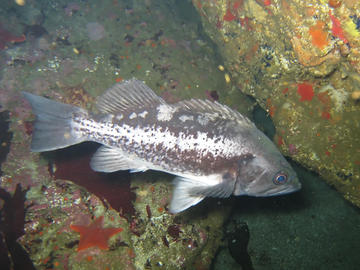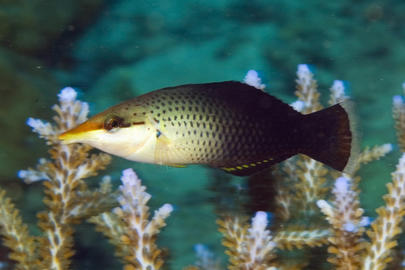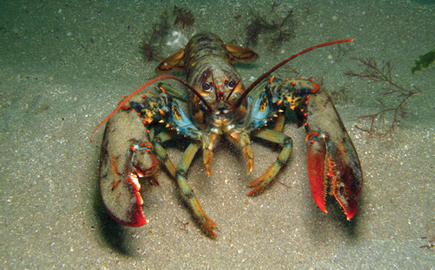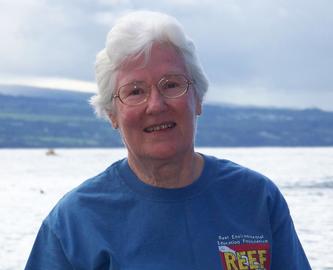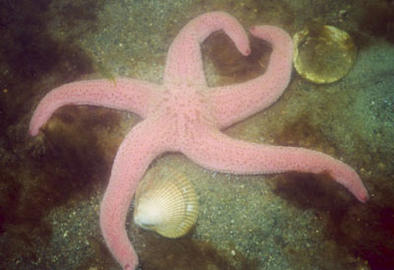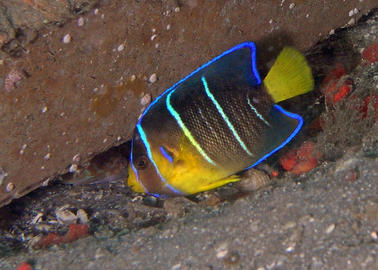A new scientific paper was recently published in the journal Evolutionary Applications that used REEF Volunteer Fish Survey Project. REEF data were used to validate population estimates of Black Rockfish throughout western Canada, Washington State, and Oregon. These results were then used to evaluate the efficacy of marine reserve networks in these areas.
We've got lots of exciting, fun, and educational REEF Fishinars in store for you this year - featuring your favorite instructors and special guests alike. Check out the full schedule at www.REEF.org/fishinars. Fishinars coming up include:
REEF members are at the heart of our grassroots marine conservation programs. Over 50,000 divers, snorkelers, students, and armchair naturalists stand behind our mission.
This month we highlight Juddith Cucco. Judith has been a REEF member since 2010, and has conducted 555 surveys (all in her home state of Hawaii, and all as a snorkeler!). She is a member of the Hawaii Advanced Assessment Team as an Expert Surveyor. Here's what Judith had to say about REEF:
When and how did you first volunteer with REEF or become a REEF member?
Please take a few minutes to tell others about your experience with REEF! Your personal story and feedback help us gain visibility and help us improve. Please share your experience through the GreatNonprofits.org website at: http://gr8np.org/go/yKD
In the summer of 2014, recreational divers in Florida and the Bahamas will once again assemble teams, scout out hundreds of sites, sharpen their spears, ready their nets, and hone their collecting skills to prepare for another REEF summer lionfish derby series. Six years ago, REEF began hosting lionfish derbies throughout Florida and the Caribbean to address the lionfish invasion.
REEF is excited to announce that we have added a new invertebrate and algae survey program to the Northeast region (Virginia - Newfoundland). Similar to our other temperate regions, REEF surveyors in this area can now record all fishes as well as a select group of 60 invertebrate and algae species. Species included in the program were selected in consultation with regional scientists and experts to serve as a representative sample of the biodiversity of the region.
Patricia Richardson of Hawaii recently submitted her 1000th REEF survey! Pat joins 16 other REEF members in the Golden Hamlet Club. Pat has done most of her surveys at one location, Richardson Ocean Park in Hilo, which has given her a very unique perspective on how the populations change throughout the year and over time.
Every month, scientists, government agencies, and other groups request raw data from REEF’s Fish Survey Project database. Here is a sampling of who has asked for REEF data recently and what they are using it for:
- Researchers from Western Washington University, Simon Frasier University, and the SeaDoc Society are all using REEF data to evaluate the status of echinoderms in the Pacific Northwest and how the rapid spread of seastar wasting disease will affect populations.
Our 2014 Fishinar schedule is off to a great start! We've got lots of exciting, fun, and educational REEF Fishinars in store for you this year - featuring your favorite instructors and special guests alike. Check out the full schedule at www.REEF.org/fishinars. Fishinars coming up include:
Have you booked your 2014 REEF Trip yet? If not, confirm your space now before it's too late! Many trips are sold out, or close to it. Prices and complete details can be found online at www.REEF.org/trips.

